Alkemi Not Restricted to
the English Alphabet
For instance, say, Chinese:
Here is some Chinese text:
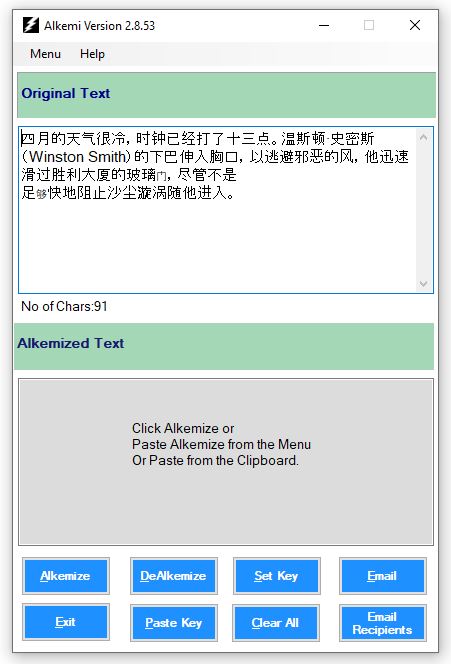
Using the same key, click Alkemize:
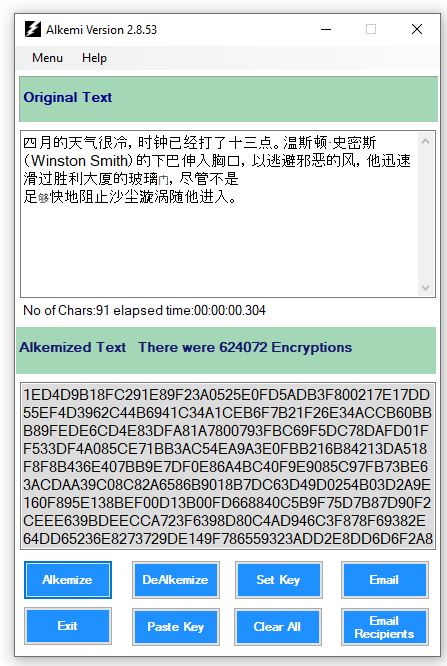
And the same thing happens: Alkemi takes your original text and converts it into Hexascii, keeping your text private.
Just to mention, your key can be in one language or characters and your Original Text in another. They are not related. And they can be mixed up. Your text can be a combination of whatever languages you want. Same with the key.
That’s it.
Each Time You Alkemize Results are Different
Here is a long series of capital A's, which we have alkemized.
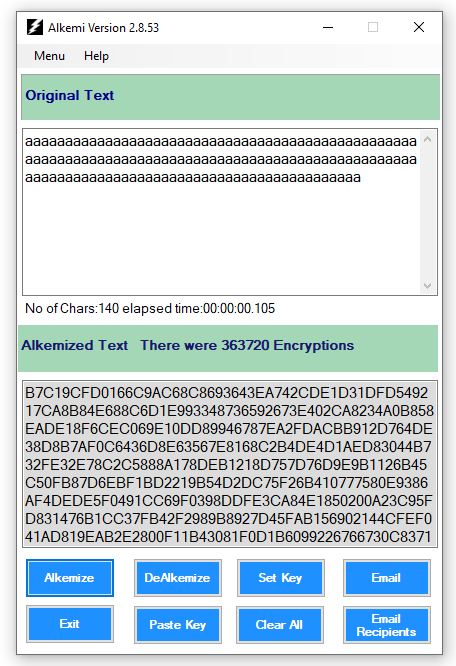
And now we Alkemize our original text again:
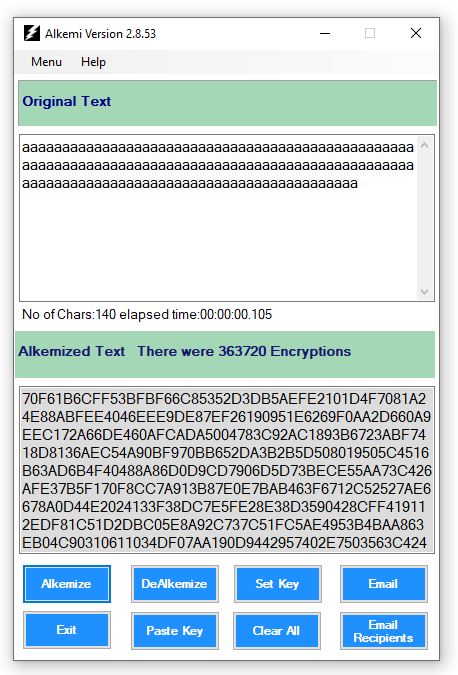
The Alkemized text is different. It will be different each time. But the key is the same. So, even though the Alkemized text will be different each time, when you de-Alkemize, you get the same Original Text back.
Now you know how easy it is to use Alkemi:
- Enter text
- Enter a key
- Click Alkemize
To summarize:
- You can Alkemize many different languages and even mix them up.
- Each time you Alkemize text the result is different but your data is still safe
- You must keep your key secret.
- You can email or text or use messenger or text messages to send Alkemized text to anyone who knows your key because it is just text. Just capital letters A-F and numbers.
When The Key Is Lost or Forgotten
The key is very important.
The Key Is Very Important.
The key is almost like your password. EXCEPT THERE IS NO RECOVERY. If you lose the key, it is lost. LOST!
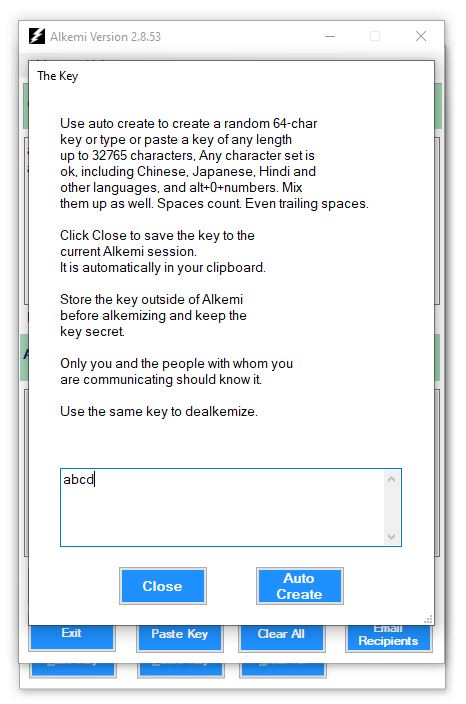
Difference between Encrypted and Alkemized
"Encrypted" means the data has been encrypted by some mechanism.
"Alkemized" means that the encrypted data is further transformed into an alphanumeric representation of that data.
This "alkemiztion" process operates on each byte of the data, converted it from its original byte value into an ASCII represetation of that data.
The converted data format is called HEXASCII.
The "HEX" part means Hexadecimal, which is a representation of data in base 16, like this:
Original data: Hi, how are you?
Hexadecimal version of "Hi, how are you?":
48692C20686F772061726520796F753F
And when it is Alkemized (that is, enccrypted and converted into HEXASCII):
001138EE45F44DFD073F0A1A97BEBB627CD61E1B03E914161AD72CAC12C0BEA27D86013B7AF8D4648BF6A45D3EB9
1296212DE8F42410AB0A1D3BA9C27521E5EF72C7D3AF7226071CFE5AFF2E1E12809CB044FC7BEB2D1400D9BF72361
391DB1347A5
So, with Alkemi, first your data is encrypted and then that encrypted data is converted into its Hexadecimal representation, or HEXASCII.
Dealkemization is the reverse process. First the HEXASCII data is converted into its underlying values and then that data is decrypted.
When translating Alkemi into other languages, it was not always obvious how to translate "Alkemize" so on occasion I used "Encrypt" and "Decrypt".



